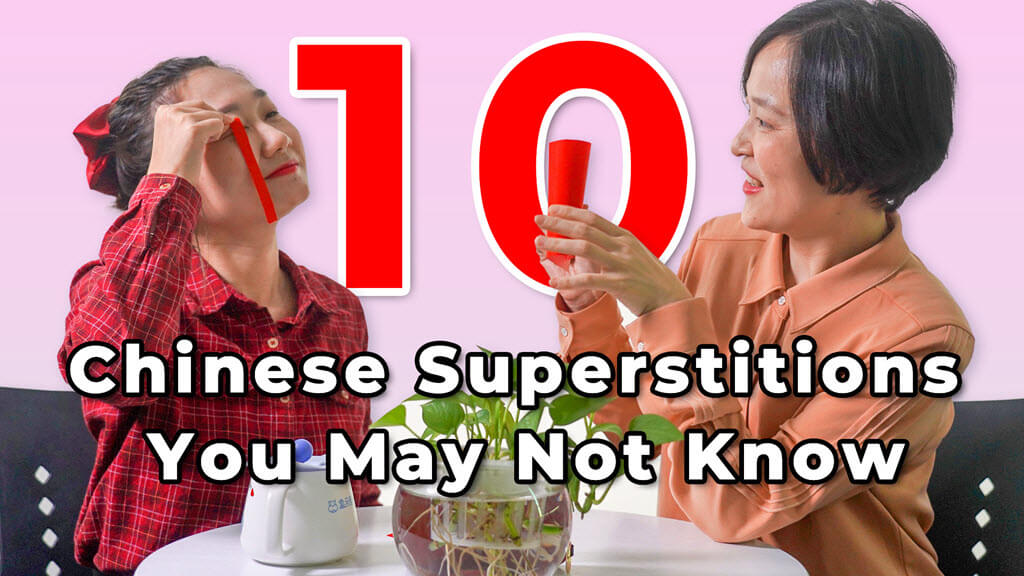It can be hard to say no to people, but sometimes we have to do so. Do you know how to say “no” in Chinese? Well, the Chinese word for “no” is “不(bù)”, but we don’t usually say “不(bù)” directly when we refuse others. There are many ways to turn down someone’s offer or invitation in Chinese. What the video lesson or read this article and learn 13 ways to say no in Chinese directly or indirectly, which help you to sound more fluent and more like a native speaker.
🎁 If you want to learn Chinese systematically and effectively, you can try our structured online courses for HSK 1 (Full Course) or HSK 2 (Full Course). Get 40% off for early birds in limited time!
How to Say No in Chinese Directly
1. 不行/不可以(bù xíng/bù kěyǐ)
“行(xíng)” and “可以(kěyǐ)” can be used to say yes in Chinese. “不行(bù xíng)” and “不可以(bù kěyǐ)” are negative forms of “行(xíng)” and “可以(kěyǐ)”. They are both very clear and direct ways to say no in mandarin.
For example:
A: 妈妈,我现在可以出去玩吗?
Mom, can I go play outside now?
B: 不行。做完作业再出去。
Nope. Finish your homework first.
A: 妈妈,我可以看一会儿电视吗?
Mom, can I watch TV for a while?
B: 不可以。你该睡觉了。
No. You should go to bed.
2. 不要(bú yào)
不要(bú yào) is another way to say no to others. It means “I don’t want (to)”. People use it to dissuade others and to show that they don’t need it or don’t want it. This phrase is usually used by children or young girls to turn down people as it sounds a little like a spoiled child.
Examples:
A: 宝贝,来吃点蔬菜。
Honey, have some vegetables.
B: 不要,我不喜欢吃。
No, I don't like them.
3. 你为什么不(nǐ wèishénme bù)…/你怎么不(nǐ zěnme bù)…
When someone asks you to do something he or she doesn’t want to do, you can refuse with a rhetorical question - 你为什么不(nǐ wèishénme bù)/你怎么不(nǐ zěnme bù)+ (do something)? When you refuse people in this way, it shows you are already a bit angry as you are asked to do what the other person doesn't want to do.
For example:
A: 今天妈妈不在家, 中午你做饭吧!
Mom is not at home. Why don't you make lunch?
B: 你为什么不做?
Why don't you do it?
4. 没门儿(méi ménr)
门(mén) means door, and 没门(méi mén) literally translates to “no door”. When you say “没门(méi mén)” or “没门(méi ménr)” to someone, you are saying that it is impossible for you to comply with their request.
For example:
A: 邓邓,借我点钱吧!
Dengdeng, can you lend me some money?
B: 没门儿。
No way.
5. 你想得美(nǐ xiǎng de měi)
想(xiǎng) means to think and 美(měi) means beautiful. “你想得美(nǐ xiǎng de měi)” can be interpreted as “You are thinking wishfully”. In spoken Chinese, it is used to tell someone that what they want to happen will definitely not happen.
For example:
A: 邓邓,你手机挺好看的,送我一个呗!
Dengdeng, your cell phone is really nice. Can you give me one?
B: 你想得美。
You wish.
6. 你想太多了(nǐ xiǎng tài duō le)
你想太多了(nǐ xiǎng tài duō le) and 你想得美(nǐ xiǎng de měi) have similar meanings. 太多(tài duō) means too much, and 你想太多了(nǐ xiǎng tài duō le) means you are thinking too much. We also say 你想多了(nǐ xiǎng duō le) in daily life.
Examples:
A: 邓邓,今天你买单呗!
Dengdeng, how about you pay the bill?
B: 你想太多了,我是不可能帮你买单的。
You are thinking too much. It’s impossible that I pay for it.
7. 你想都别想(nǐ xiǎng dōu bié xiǎng)
你想都别想(nǐ xiǎng dōu bié xiǎng) is another way of saying no in spoken Chinese. It is equivalent to “don’t even think about it” in English.
For example:
A: 邓邓,听说你买新车了,借我开一下吧!
Dengdeng, I heard you bought a new car, so can I borrow it?
B: 你想都别想。
Not a chance.
8. 你做梦吧(nǐ zuò mèng ba)
To emphasize that something is absolutely impossible, we can say “你做梦吧(nǐ zuò mèng ba)” in Chinese. If you often watch Chinese TV series, you would definitely hear this conversation:
A: 快把你们的秘密告诉我,不然我就弄死你。
Tell me your secrets right now, otherwise I will kill you.
B: 哼,你做梦!
Humph, over my dead body!
Sometimes friends also say no in this way. Similar expressions include “做梦去吧(zuò mèng qù ba)” , “做梦呢(zuò mèng ne)”, etc.
A: 邓邓,帮我写下作业呗。
Dengdeng, can you do my homework for me?
B: 你做梦吧。
In your dreams.
9. 滚(gǔn)
We don’t usually say “滚(gǔn)” to people because it’s a bit rude. But sometimes we can refuse by saying it to our close friends with a witty tone.
For example:
A: 邓邓,我肩膀疼,帮我按一下肩膀吧。
Dengdeng, my shoulders are stiff. Can you massage my shoulders?
B: 滚。
Go away.
Please note that these direct ways of saying no can only be used for people who are very close to you, for example, good friends, siblings or couples. When you use these expressions, you should be careful not to be too blunt. In addition, we don’t use these phrases to refuse elders, strangers or regular friends.
If you can’t remember them for a while, you can download the free PDF at the bottom of the page and take your time to learn how to say no in Chinese.
How to Say No in Mandarin Indirectly
Now let’s talk about indirect ways of saying no in Chinese. Generally speaking, when we reject someone, we tend to use some polite words to make them feel better.
10. 恐怕不行(kǒngpà bù xíng)/可能不行(kěnéng bù xíng)
恐怕不行(kǒngpà bù xíng) or 可能不行(kěnéng bù xíng) can be used to say no to people politely. We usually add the reason for your refusal later.
Example:
A: 邓邓,明天晚上我们一起吃饭吧。
Dengdeng, let's have dinner together tomorrow night.
B: 可能不行,我明天有事。
I’m afraid I’m not available tomorrow.
A: 邓邓,明天我们去逛街吧!
Dengdeng, let's go shopping tomorrow!
B: 恐怕不行,明天我妈过生日。
I’m afraid not. It’s my mom’s birthday tomorrow.
11. 对不起(duì bu qǐ)/抱歉(bào qiàn)/不好意思(bù hǎo yì si)
To reject someone, we can apologize first by saying “对不起(duì bu qǐ)”, “抱歉(bào qiàn,)” or “不好意思(bù hǎo yì si)”, and then explain the reason.
For example:
A: 邓邓,你可以把电脑借我用一下吗?
Dengdeng, can I borrow your computer?
B: 不好意思,我现在正用着呢。
Sorry, I am using it now.
A: 邓邓,你可以帮我打印一下这个文件吗?
Dengdeng, can you print this file for me?
B: 抱歉,我现在没空。
Sorry, I am not available right now.
12. 不用了,谢谢(bú yòng le, xiè xie)
This expression is usually used to refuse someone who offers to help you. You can also say “谢谢,你的好意我心领了(xiè xie, nǐ de hǎo yì wǒ xīn lǐng le)”.
A: 外面下雨了,我送你回去吧。
It's raining outside. Let me drive you home.
B: 不用了,谢谢。
No, thanks.
A: 邓邓,你就收下吧。
Dengdeng, please take it.
B: 谢谢,你的好意我心领了。这个太贵重了,我不能收。
Thanks, I appreciate your good intentions but this is too precious and I can’t accept it.
13. 我再考虑考虑(wǒ zài kǎolǜ kǎolǜ)
We often use “我再考虑考虑(wǒ zài kǎolǜ kǎolǜ- let me think about it)” to reject other people’s sales or suggestions implicitly. You can also use “我再考虑一下(wǒ zài kǎolǜ yí xià)”, “我再想想(wǒ zài xiǎngxiang)”, “算了吧(suàn le ba)” or “再说吧(zài shuō ba, )” to reject people politely.
For example:
A: 这件衣服特别适合您,我给您包起来吧。
This dress really suits you. Would you like me to wrap it for you?
B: 我再考虑考虑。
Let me think about it.
A: 今天办会员,充¥2000送¥200,办一个吧!
If you apply for a membership card today, you can get ¥ 200 for the top-up of 2000. Why not apply for one?
B: 我再想想。
I’ll think about it.
A: 吃完晚饭后,我们去看个电影吧!
Let’s go watch a movie after dinner!
B: 还是算了吧,我想早点回家。
Forget it. I want to get back early.
Conclusion
Now you’ve read our list of 13 ways to say no in Chinese. Have you learned how to reject others in Chinese? You can download the MP3 and PDF of this Chinese lesson for on-the-go learning. Don’t forget to take the quiz on this lesson! If you know other expressions to say no in Chinese, please share with us in the comment section below.





Comments